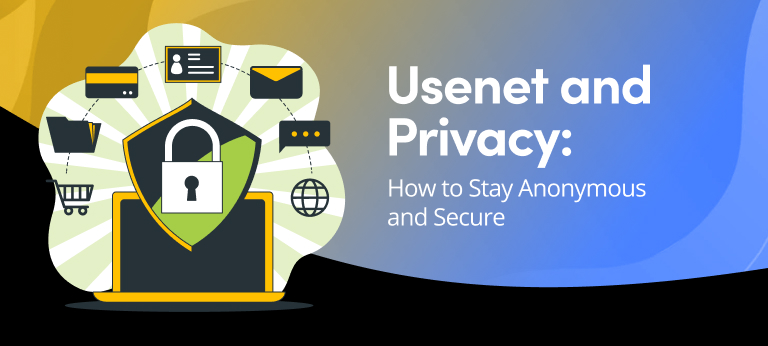Usenet has long been a reliable platform for sharing information, engaging in discussions, and accessing a vast array of content. However, as with any online activity, privacy and security concerns are paramount. This article serves as a comprehensive guide to help Usenet users maintain their anonymity and security while navigating this expansive network of newsgroups. We’ll cover essential topics, including encryption, VPNs, and best practices for anonymous posting.
Understanding Usenet Privacy Concerns:
Before diving into specific privacy measures, it’s crucial to understand the potential privacy risks associated with Usenet:
1. IP Address Exposure: Usenet is a public network where your IP address can be visible to other users. This exposure can pose privacy risks if not managed correctly.
2. Content Monitoring: Some Usenet providers may log user activity or monitor content for various reasons. This could potentially compromise your privacy.
3. Copyright Concerns: Sharing copyrighted material without proper authorization can lead to legal consequences. Maintaining anonymity is essential when participating in file-sharing discussions.
Privacy Best Practices for Usenet:
To protect your privacy while using Usenet, consider implementing the following best practices:
1. Use a Reliable VPN:
A Virtual Private Network (VPN) is an essential tool for maintaining anonymity on Usenet. Here’s how it works:
– Anonymity: A VPN conceals your IP address by routing your Usenet traffic through a secure server in a different location. This prevents anyone from easily tracing your activities back to your actual IP address.
– Encryption: A quality VPN also encrypts your internet traffic, ensuring that even if someone intercepts your data, it remains secure and private.
– Provider Selection: Choose a reputable VPN provider that does not keep logs of your online activities.
2. Encrypted Connections:
To enhance security, always use encrypted connections when accessing Usenet:
– SSL/TLS: Ensure that your Usenet provider supports SSL/TLS encryption. This protects your data from eavesdropping while in transit between your computer and the Usenet server.
– Use Ports: Configure your Usenet client to use SSL/TLS encryption by connecting to specific ports (usually 563 for SSL and 443 for TLS). This is an additional layer of security.
3. Choose a Privacy-Focused Usenet Provider:
Opt for Usenet providers that prioritize user privacy:
– Logging Policies: Research providers with strict no-logging policies, meaning they don’t keep records of your online activities.
– Privacy Features: Some Usenet providers offer additional privacy features, such as anonymized payment methods or offshore servers.
4. Anonymous Posting Practices:
When participating in discussions or posting content on Usenet, follow these tips for maintaining anonymity:
– Use a Pseudonym: Instead of revealing your real name, use a pseudonym or nickname when creating Usenet accounts or posting.
– Limit Personal Information: Avoid sharing personal details or information that could potentially identify you.
– Avoid Direct References: When discussing sensitive topics or file-sharing, avoid directly referencing illegal activities or copyrighted materials.
– Avoid Cross-Posting: Cross-posting messages across multiple newsgroups can inadvertently expose your identity. Exercise caution when posting in multiple groups.
5. Regularly Update Software:
Keep your Usenet client and other software up to date. Software updates often include security patches that address vulnerabilities, helping to protect your privacy.
6. Enable Firewall and Anti-Malware Protection:
Ensure that your firewall and anti-malware software are active and up to date to prevent malicious activities and potential breaches.
Conclusion:
Usenet offers a wealth of information, but it’s essential to prioritize your privacy and security while participating in this dynamic community. By implementing the best practices mentioned in this guide, such as using a reliable VPN, encrypted connections, and anonymized posting, you can enjoy the benefits of Usenet while safeguarding your online identity and data.
Remember that privacy is an ongoing commitment. Stay informed about evolving threats and privacy-enhancing tools to maintain a secure and anonymous presence on Usenet. By taking these precautions, you can confidently explore Usenet’s vast world while keeping your personal information safe from prying eyes.

